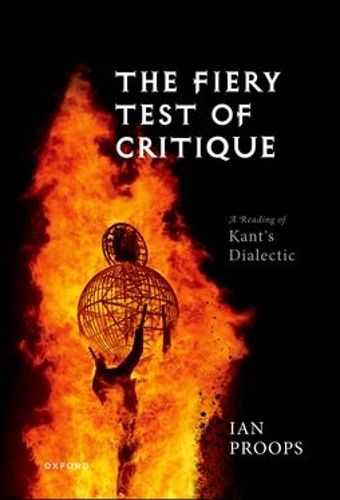Readings Newsletter
Become a Readings Member to make your shopping experience even easier.
Sign in or sign up for free!
You’re not far away from qualifying for FREE standard shipping within Australia
You’ve qualified for FREE standard shipping within Australia
The cart is loading…






Kant conceived of 'critique' as a kind of winnowing exercise, one whose aim was to separate the wheat of good metaphysics from the chaff of bad. But he used a less familiar metaphor to make this point, namely, that of a 'fiery test of critique'. This is not a medieval ordeal or trial by fire, but rather a metallurgical assay, a procedure in which ore samples are tested for their precious-metal content. Critique therefore has a positive, investigatory side: it seeks not merely to eliminate bad, 'dogmatic' metaphysics but also to discover what valuable residue traditional speculative metaphysics might contain. In this comprehensive study of the Transcendental Dialectic of Kant's Critique of Pure Reason, Proops argues that Kant uncovered two nuggets of value: the indirect proof of Transcendental Idealism afforded by the resolution of the Antinomies, and a defence of theoretically grounded 'doctrinal beliefs' in a wise and great originator, on the one hand, and in an afterlife, on the other. This examination of critique engages with Kant's views on a number of central problems in philosophy and meta-philosophy: the explanation of the enduring human impulse towards metaphysics, the correct philosophical method, the limits of self-knowledge, the possibility of human freedom, the resolution of metaphysical paradox ('Antinomy'), the justification of faith, the nature of scepticism, and the role of 'as if ' reasoning in natural science.
$9.00 standard shipping within Australia
FREE standard shipping within Australia for orders over $100.00
Express & International shipping calculated at checkout
Stock availability can be subject to change without notice. We recommend calling the shop or contacting our online team to check availability of low stock items. Please see our Shopping Online page for more details.
Kant conceived of 'critique' as a kind of winnowing exercise, one whose aim was to separate the wheat of good metaphysics from the chaff of bad. But he used a less familiar metaphor to make this point, namely, that of a 'fiery test of critique'. This is not a medieval ordeal or trial by fire, but rather a metallurgical assay, a procedure in which ore samples are tested for their precious-metal content. Critique therefore has a positive, investigatory side: it seeks not merely to eliminate bad, 'dogmatic' metaphysics but also to discover what valuable residue traditional speculative metaphysics might contain. In this comprehensive study of the Transcendental Dialectic of Kant's Critique of Pure Reason, Proops argues that Kant uncovered two nuggets of value: the indirect proof of Transcendental Idealism afforded by the resolution of the Antinomies, and a defence of theoretically grounded 'doctrinal beliefs' in a wise and great originator, on the one hand, and in an afterlife, on the other. This examination of critique engages with Kant's views on a number of central problems in philosophy and meta-philosophy: the explanation of the enduring human impulse towards metaphysics, the correct philosophical method, the limits of self-knowledge, the possibility of human freedom, the resolution of metaphysical paradox ('Antinomy'), the justification of faith, the nature of scepticism, and the role of 'as if ' reasoning in natural science.